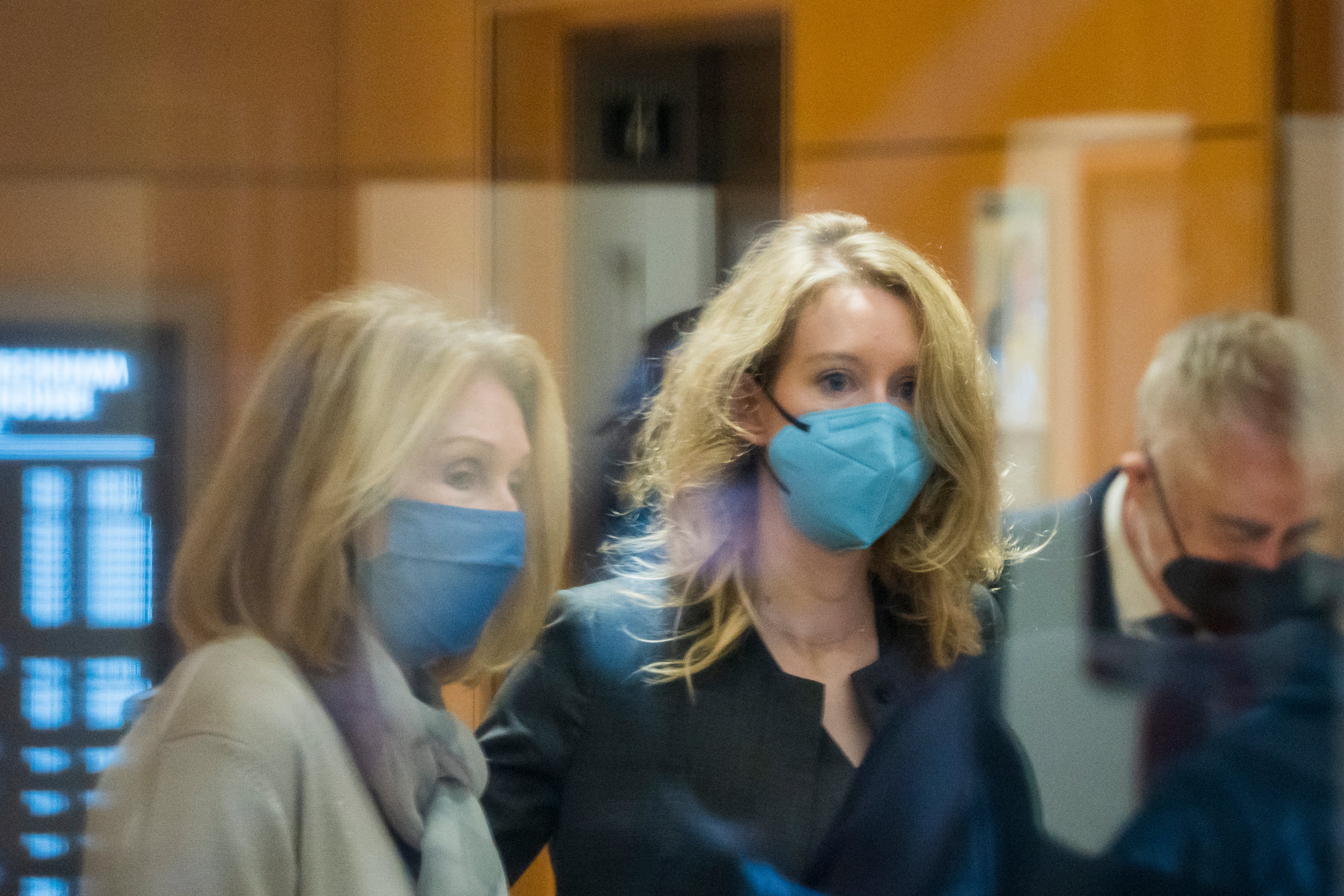What will Silicon Valley learn from Holmes' conviction?
The fraud conviction of former Theranos CEO Elizabeth Holmes could offer Silicon Valley some valuable lessons about the dangers of hype and hiding problems

The fraud conviction of former Theranos CEO Elizabeth Holmes could offer Silicon Valley s culture of hubris and hype some valuable lessons.
Will anyone in the tech industry actually take this moment to heart? Don't count on it.
Holmes was found guilty on Monday of duping investors into believing that Theranos had developed a revolutionary medical device that could detect a multitude of diseases and conditions from a few drops of blood. She could face up to 20 years in prison for each charge, although legal experts say she is unlikely to receive the maximum sentence.
Federal prosecutors depicted Holmes as a charlatan obsessed with fame and fortune. In seven days on the witness stand, she cast herself as a visionary trailblazer in male-dominated Silicon Valley who was emotionally and sexually abused by her former lover and business partner, Sunny Balwani.
The trial also laid bare the pitfalls of one of the go-to moves of Silicon Valley entrepreneurs — conveying a boundless optimism regardless of whether it’s warranted, known as “fake it ‘til you make it.” That ethos helped hatch groundbreaking companies such as Google, Netflix, Facebook, and Apple — the latter co-founded by one of Holmes’ heroes, Steve Jobs
But few expect her conviction to lower the wattage on the brash promises and bold exaggerations that have become a routine part of the tech industry’s innovation hustle.
Holmes' conviction “will send a message to CEOs that there are consequences in overstepping the bounds,” suggested Ellen Kreitzberg, a Santa Clara University law professor who attended the trial. On the other hand, she said, “investors are still going to want to make more money on a promising idea. They will always go in for the golden ring.”
Holmes remained seated and expressed no visible emotion as the verdicts were read. She bowed her head several times before the jury was polled by U.S. District Judge Edward Davila. After the judge left the courtroom to meet with jurors individually, Holmes got up to hug her partner, Billy Evans, and her parents before leaving with her lawyers.
The bold dream Holmes pursued when she founded Theranos in 2003 at the age of 19 had become a nightmare by the time she was indicted on felony charges in 2018.
During that span, Holmes went from an unknown to a Silicon Valley sensation who had amassed a $4.5 billion fortune on paper to a vilified failure. Her downfall was dissected in documentaries, books, podcasts and will soon be rehashed in a Hulu TV series called “The Dropout” starring Amanda Seyfried in the lead role.
Holmes set out to create a less painful, more convenient and cheaper way to scan for hundreds of diseases and other health problems by taking just a few drops of blood with a finger prick instead of inserting a needle in a vein. She aimed to upend an industry dominated by giant testing companies such as Quest Diagnostics and Labcorp, starting with setting up “mini-labs” in Walgreens and Safeway stores across the U.S. that would use a small Theranos device called the Edison to run faster, less intrusive blood tests.
The concept — and the way Holmes presented it — enthralled wealthy investors eager to buy an early stake in a game-changing company. It helped Theranos raise more than $900 million from savvy billionaires such as media mogul Rupert Murdoch and software magnate Larry Ellison, as well as well-to-do families such as the Waltons of Walmart and the DeVos clan behind Amway.
Holmes also wooed a well-connected board that included two former U.S. secretaries of state, Henry Kissinger and the late George Shultz: two former secretaries of defense, Gen. James Mattis and William Perry; former Sen. Sam Nunn; and former Wells Fargo CEO Richard Kovacevich. She charmed former President Bill Clinton in an on-stage presentation and impressed then-Vice President Joe Biden, who effusively praised her during a 2015 tour of a Theranos lab.
What most people did not know at the time was that Theranos’ blood-testing technology kept producing misleading results. That forced patients to undergo regular blood draws instead of the promised finger sticks and led Theranos to secretly test those samples using conventional machines in a traditional laboratory setting. Evidence presented at the trial also showed that Holmes lied about purported deals that Theranos had reached with big drug companies such as Pfizer and the U.S. military.
The deception backfired in 2015 after a series of explosive articles in The Wall Street Journal and a regulatory audit of Theranos uncovered potentially dangerous flaws in the company’s technology, leading to its eventual collapse.
During her testimony, Holmes occasionally expressed contrition for her handling of a variety of issues, but she often contended that she had forgotten the circumstance surrounding some of the key events spotlighted by the prosecution. She insisted she never stopped believing that Theranos was on the verge of refining its technology.
Instead, she heaped blame on Balwani, who she secretly lived with while he was Theranos’ chief operating officer from 2009 to 2016.
Holmes testified that Balwani let her down by failing to address the laboratory problems that he had promised to fix and, in the most dramatic testimony of the trial, alleged he had turned her into his pawn through a long-running pattern of abuse while exerting control over her diet, sleeping habits and friendships. This all occurred, she said, after being raped by an unnamed assailant while she was still enrolled at Stanford.
___
Associated Press Business Writer Marcy Gordon contributed to this story from Washington.
Bookmark popover
Removed from bookmarks